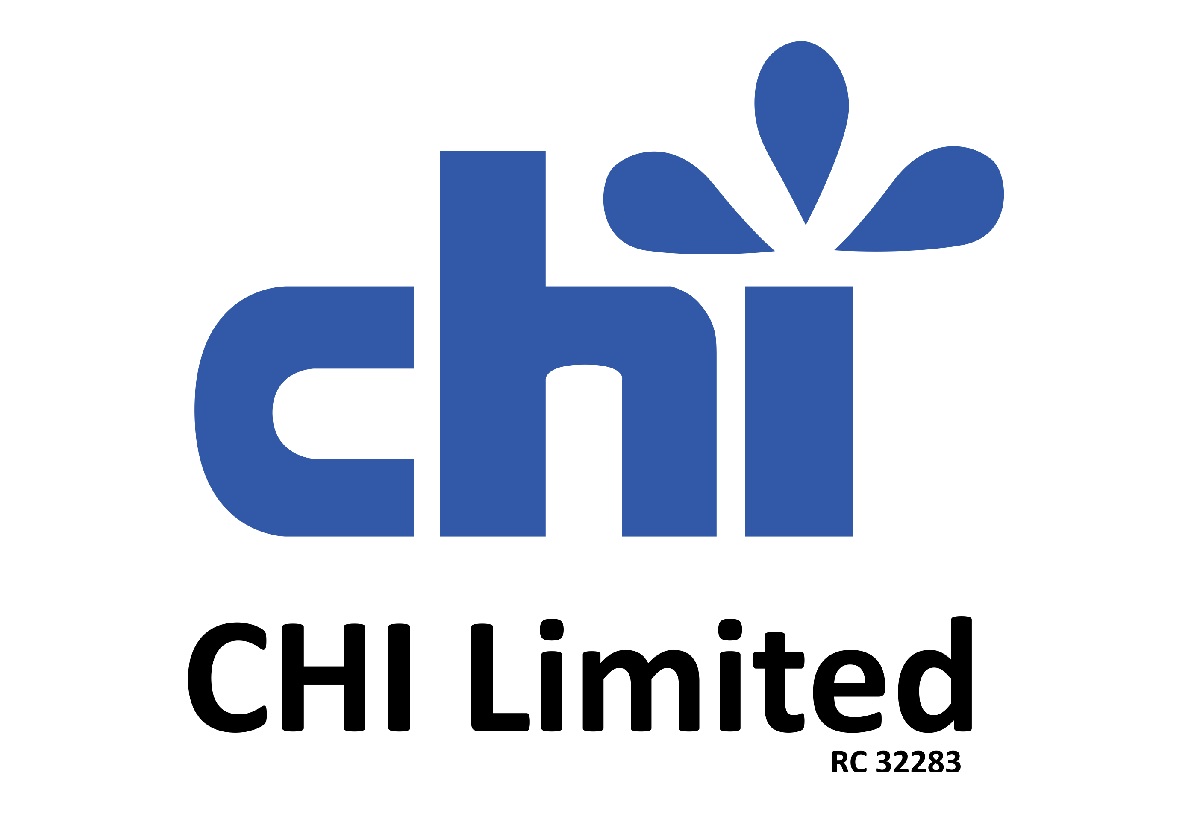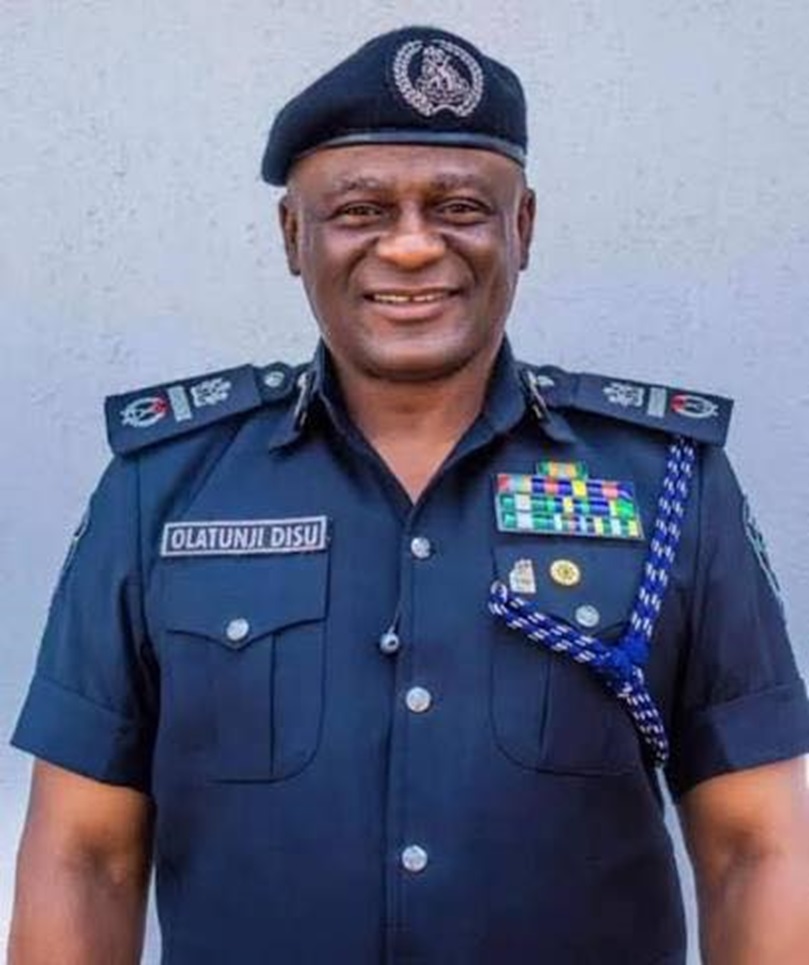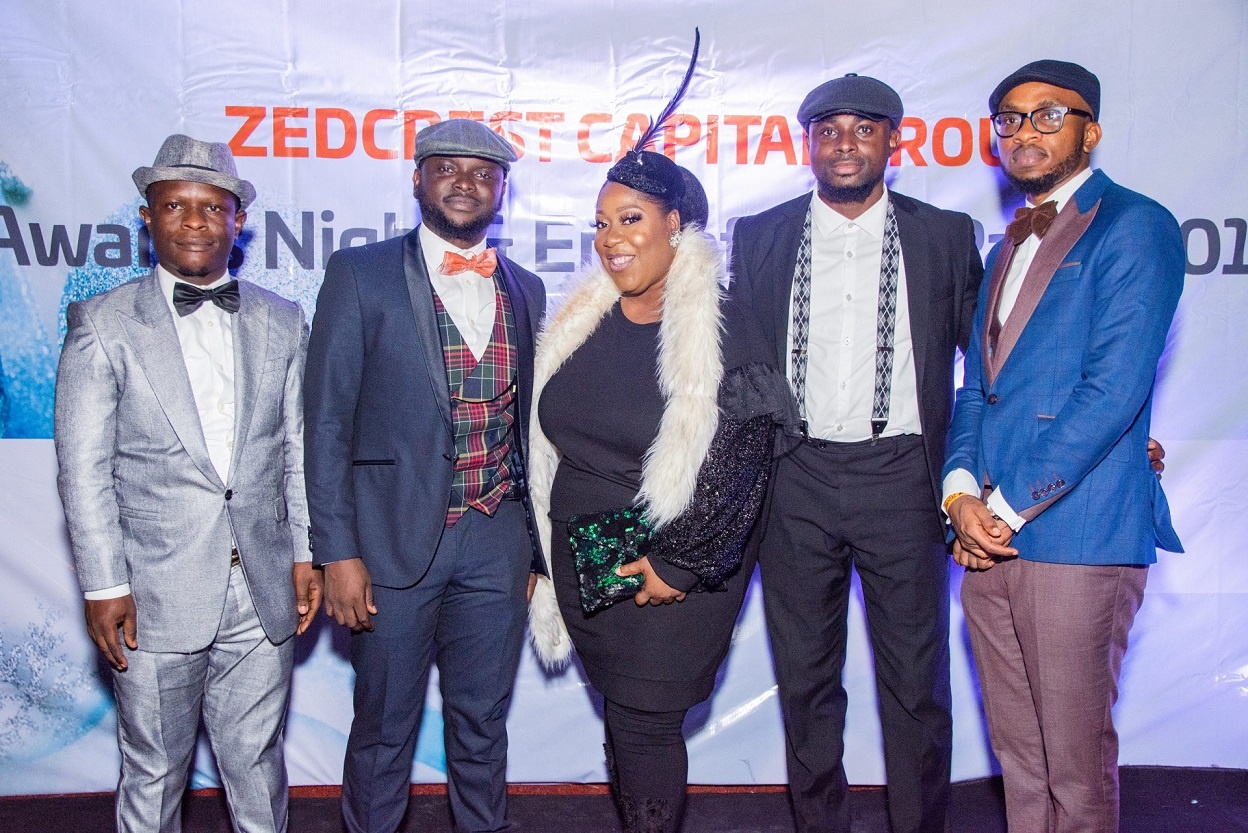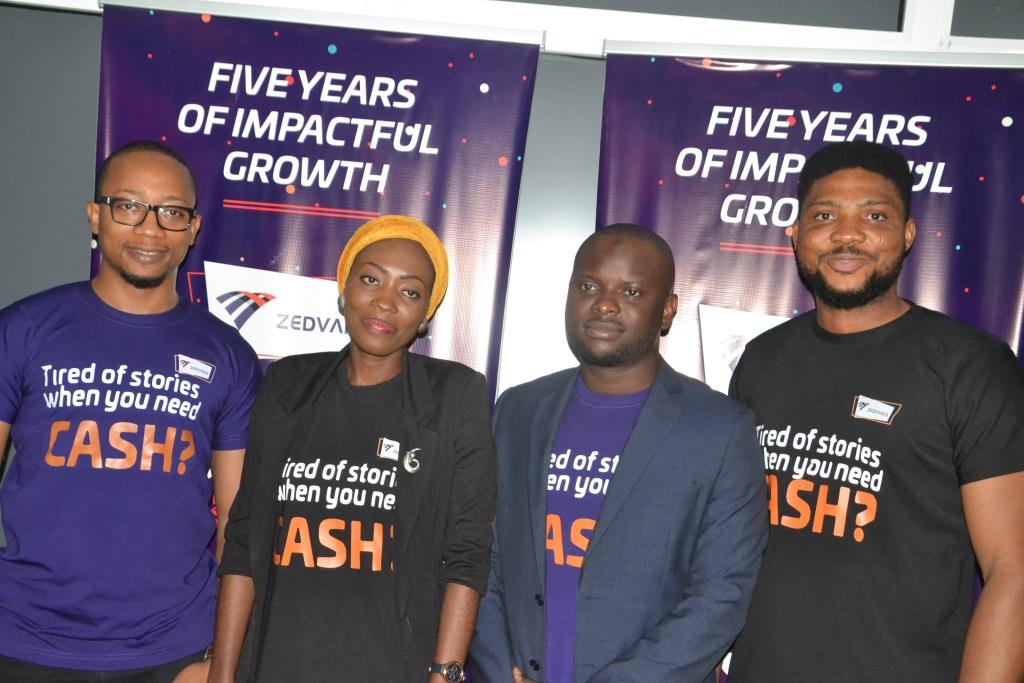Jobs/Appointments
Zedcrest Capital Charts New Growth Strategy, Appoints Directors
By Modupe Gbadeyanka
Leading capital management firm in Nigeria, Zedcrest Capital Group, has announced the appointments of Mr Babatunde Sanda and Ms Stella Duru to its Board of Directors, with immediate effect as part of its corporate governance strategy and business expansion drive.
According to the company’s Group Managing Director, Mr Adedayo Amzat, the organisation is charting a new growth strategy targeted primarily at the retail opportunities in the market with the aim of creating more wealth for its clients.
“After operating in the market for over five years, the time has come to deepen our market penetration. Our Fixed Income and Currencies (FICC) operations have been primarily driven by a focus on wholesale dealing and brokerage to foreign portfolio investors, local pension fund administrators, asset managers and banks.
“We have identified High Net-worth Individuals (HNIs) and the retail space as new areas of focus and expansion for our business.
“To this end, we will be unveiling bespoke fixed income and wealth management solutions for the HNIs and retail markets through our newly licensed Asset Management subsidiary (Zedcrest Investment Managers) while we continue to serve our wholesale customers through ZedCap Partners, our SEC licensed inter-dealer brokerage business,” said Mr Amzat.
“With the newly crafted growth strategy, we are strengthening our board with successful professionals with diverse competencies who will guide the company through the next chapter of its growth trajectory,” added Mr Amzat.
Since its establishment in 2013, Zedcrest Capital has steadily grown to become one of the most sought-after securities dealing and proprietary investment firms in Nigeria.
Also commenting on the appointments, the pioneer and out-going Chairman of the company, Mr Abiola Aderounmu, commended the management of Zedcrest Capital Group for its well acclaimed achievements in the financial markets.
Mr Babatunde Sanda has over 36 years cognate experience with over 18 years experience in Auditing and Consulting, spanning three of the biggest international professional firms namely Coopers & Lybrand, Ernst & Whinney and PriceWaterHouse where he rose to the position of Senior Consultant in 1990. He retired as a Senior Partner of EY in December 2016. He is now into Economic, business and financial consulting.
His banking career started in 1991 and he rose to the position of Executive Director, Finance in 1998 at Wema Bank Plc and was Managing Director in 2000 of Banque International du Benin, Cotonou -a universal bank in Cotonou, Benin Republic. He was appointed by the Central Bank of Nigeria (CBN) in 2006 to serve as Director of Societe General Bank of Nigeria Ltd (while in holding action).
Mr Sanda holds an honours degree in Business Administration from the University of Benin and is an alumnus of the Advanced Management Program of Stanford University, California, USA. He has attended various management and development courses in major international institutes across the globe. He is a Fellow of the Institute of Chartered Accountants of Nigeria (ICAN) and an Associate of the Chartered Taxation Institute of Nigeria.
On her part, Ms Stella Duru is the only female Partner in Banwo & Ighodalo’s Energy and Natural Resources Practice Group. Her core areas of practice are Energy & Natural Resources, Project Finance and Corporate Finance. She is renowned for her extensive experience in the power sector and authors articles in leading law publications. Ms Duru has deep experience in oil, gas and power projects in Nigeria and has been involved in World Bank sponsored work streams advising on the power sector reforms in Nigeria.
She was involved in the privatization and sale of government assets in the hitherto vertically integrated government owned power utility as well as in the new business units that were spun off this utility.
She is currently leading the initiative on renewable energy transactions in her firm and in this regard, is advising several investors who are developing renewable projects in Nigeria. Ms Duru to advise on transactions along the entire value chain of generation, transmission and distribution; as well as on deals pertaining to IPPs, off-grid and on-grid solutions to the power deficit in Nigeria. She is very passionate about monetizing and utilizing Nigeria’s natural gas resources in order to get Nigeria powered up.
She obtained a law degree from the University of Lagos, Nigeria; and was admitted into the Nigerian Bar in January 2001. Ms Duru is a member of the Nigerian Bar Association, International Bar Association (Section on Energy and Natural Resources Law) and Association of International Petroleum Negotiators. She is also an Associate of the Nigeria Leadership Initiative (a leadership development not-for-profit, affiliated with the Aspen Institute) as well as an Associate WimBiz (an association of Women in Management, Business & Public Service).
Jobs/Appointments
Court Sanctions CHI Limited for Wrongful Employment Termination

By Modupe Gbadeyanka
The termination of the employment of one Mr Bodunrin Akinsuroju by CHI Limited has been declared as unlawful by the National Industrial Court of Nigeria.
Delivering judgment on the matter, Justice Sanda Yelwa of the Lagos Judicial Division of the court held that the sacking of Mr Akinsuroju did not comply strictly with the provisions of the contract of employment and the Employee Handbook.
Consequently, the company was directed to pay him the sum of N2 million as general damages for wrongful termination and N200,000 as costs of action, while Mr Akinsuroju was ordered to return the company’s properties in his possession or pay their assessed market value.
Justice Yelwa found that the contract agreement between both parties clearly required either party to give 30 days’ notice or payment in lieu of notice after confirmation of appointment, and there was no evidence that the employee was given the required notice or paid salary in lieu of notice.
The judge held that failure to comply with this fundamental term amounted to a breach of the contract of employment, thereby rendering the termination wrongful.
Mr Akinsuroju had claimed that the allegation of misconduct against him was unfounded and not established, maintaining that the disciplinary committee proceedings were prejudicial and that the termination of his employment was without justifiable cause and without compliance with the agreed terms of his employment.
In defence, CHI Limited contended that it had the right to terminate the employment of Mr Akinsuroju and that the termination was lawful and in accordance with the contract of employment and the Code of Conduct.
In opposition, counsel to Mr Akinsuroju submitted that the alleged breaches were not proved and that the termination letter took immediate effect without the requisite 30 days’ notice or payment in lieu of notice as stipulated in the letter of appointment and the Employee Handbook, urging the court to hold that the termination was wrongful and to grant the reliefs sought.
Jobs/Appointments
Tinubu Appoints Tunji Disu as Acting Inspector General of Police

By Modupe Gbadeyanka
President Bola Tinubu on Tuesday appointed Mr Tunji Disu as the acting Inspector General of Police (IGP), following the resignation of Mr Kayode Egbetokun.
Mr Disu, an Assistant Inspector General of Police (AIG), was recently moved to the Force Criminal Investigation Department (FCID) Annex, Alagbon, Lagos.
A statement today by the Special Adviser to the President on Information and Strategy, Mr Bayo Onanuga, disclosed that the President would convene a meeting of the Nigeria Police Council shortly to formally consider the appointment of Mr Disu as substantive IGP, after which his name will be transmitted to the Senate for confirmation.
Mr Tinubu expressed confidence that Mr Disu’s experience, operational depth, and demonstrated leadership capacity would provide steady and focused direction for the Nigeria Police Force during this critical period.
He reiterated his administration’s unwavering commitment to enhancing national security, strengthening institutional capacity, and ensuring that the Nigeria Police Force remains professional, accountable, and fully equipped to discharge its constitutional responsibilities.
Mr Egbetokun was said to have resigned from the position due to pressing family considerations.
President Tinubu, who accepted the resignation letter, expressed his profound appreciation for Mr Egbetokun’s decades of distinguished service to the Nigeria Police Force and the nation. He acknowledged his dedication, professionalism, and steadfast commitment to strengthening internal security architecture during his tenure.
Appointed in June 2023, Mr Egbetokun was serving a four-year term scheduled to conclude in June 2027, in line with the amended provisions of the Police Act.
The statement disclosed that his replacement was in view of the current security challenges confronting the nation, and acting in accordance with extant laws and legal guidance.
Jobs/Appointments
Tunji Disu to Become New IGP as Egbetokun Quits

By Adedapo Adesanya
Mr Tunji Disu, an Assistant Inspector General of Police (AIG), has reportedly replaced Mr Kayode Egbetokun as the new Inspector General of Police (IGP).
Mr Egbetokun resigned from the position on Tuesday after he was said to have held a meeting with President Bola Tinubu on Monday night at the Presidential Villa in Abuja.
President Tinubu appointed Mr Egebtokun as the 22nd IGP on June 19, 2023, with his appointment confirmed by the Nigeria Police Council on October 31, 2023.
Appointed as IGP at the age of 58, Mr Egbetokun was due for retirement on September 4, 2024, upon reaching the mandatory age of 60, but his tenure was extended by the President, creating controversies, which trailed him until his exit from the force today.
Although the police authorities are yet to comment on the matter or issue an official statement about his resignation, the move came amid reports suggesting that Mr Egbetokun has left the position.
Mr Egbetokun’s tenure was marred by a series of controversies; he recently initiated multiple charges against activist Mr Omoyele Sowore and his publication, SaharaReporters, after Mr Sowore publicly described him as an “illegal IGP.”
The dispute escalated into protracted legal battles, with the Federal High Court issuing injunctions restricting further publications relating to the former police chief and members of his family. Critics interpreted these court actions as attempts to stifle dissent and weaken press freedom.
His replacement, Mr Disu, was posted to oversee the Force Criminal Investigation Department (FCID) Annex, Alagbon, Lagos, some days ago.
-

 Feature/OPED6 years ago
Feature/OPED6 years agoDavos was Different this year
-
Travel/Tourism10 years ago
Lagos Seals Western Lodge Hotel In Ikorodu
-

 Showbiz3 years ago
Showbiz3 years agoEstranged Lover Releases Videos of Empress Njamah Bathing
-

 Banking8 years ago
Banking8 years agoSort Codes of GTBank Branches in Nigeria
-

 Economy3 years ago
Economy3 years agoSubsidy Removal: CNG at N130 Per Litre Cheaper Than Petrol—IPMAN
-

 Banking3 years ago
Banking3 years agoSort Codes of UBA Branches in Nigeria
-

 Banking3 years ago
Banking3 years agoFirst Bank Announces Planned Downtime
-

 Sports3 years ago
Sports3 years agoHighest Paid Nigerian Footballer – How Much Do Nigerian Footballers Earn
















